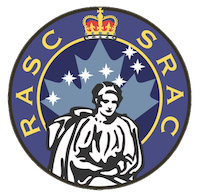William Augustus Rogers, Professor of Physics and Astronomy in Colby University, Waterville, Maine, was born at Waterford, Connecticut, on November 13, 1832, and graduated at Brown University in 1857. Soon afterwards he became Professor of Mathematics and Astronomy at Alfred University, in the State of New York. During his tenure of this office, he passed some time at the Observatory of Harvard College, and took part in its work under the direction of Professor Bond; and he was subsequently engaged for fourteen months in the naval service of the United States during the Civil War, which broke out in 1861. In 1870, after much success at Alfred University, both as a teacher and as an investigator, he returned to Harvard College Observatory, under the direction of Professor Winlock, and was soon placed in exclusive charge of the new meridian circle mounted in that year. With this instrument he undertook the observation of the zone from 49° 50' to 55° 10' north declination, as a part of the general revision of the Durchmusterung, proposed by the Astronomische Gesellschaft. The results of this work are published in Vols. XV, XVI, XXV, XXXV and XXXVI of the Annals of the Astronomical Observatory of Harvard College. Volumes X and XII of the same series contain the results of observations made in connection with the zone observations upon a selected list of stars in various declinations. Professor Rogers also made a series of observations for determining the absolute positions of certain stars, the reduction of which he did not live to complete; but it was hoped that it could be finished in accordance with his intentions.
In making transit observations, Professor Rogers preferred to use double lines etched or ruled upon glass plates instead of spider lines. The experiments which he undertook in preparing such plates led him by degrees to elaborate investigations in the exact measurements of standards of length. He carried on these researches with great energy and perseverance, at the same time with his astronomical work, and with unusual success. It would be impracticable in the present notice to give even a brief account of this section of his labors, the results of which are, however, well known and appreciated among physicists.
He was appointed Assistant Professor of Astronomy at the Observatory in 1877, and held that office till 1886, when he resigned it to accept the professorship at Colby University, where he spent the remainder of his life in the same active and zealous devtion to scientific pursuits by which he had always been distinguished. While continuing to superintend the reduction of the observations which he had made at Cambridge, he also found time, not only for teaching, but for the pursuit of many physical investigations. Among others may be mentioned the study of the so-called X-rays, in which he engaged with an ardor which may perhaps have contributed to enfeeble his naturally vigorous constitution. He passed away in Waterville on March 1, 1898.
Numerous contributions to scientific periodicals and to the proceedings of the learned societies of which he was a member, as well as the larger publications already mentioned, remain to attest his industry and capacity as a man of science, while the remembrance of his high character and cordial manners will long be cherished by those who knew him.
Arthur Searle, Harvard College Observatory, May 6, 1898.
At the meeting of 1894-01-09, Professor William A. Rogers, of Colby University, Waterville, Me., who has taken a deep interest in Canadian scientific matters, was elected a Corresponding Member of the Astronomical and Physical Society of Toronto. In a reply to his notice of nomination, he had written, "I should highly appreciate an election to your Society as a Corresponding Member."
Surname:
Rogers
Title/Given Name:
Prof. William A.
Nation(s):
USA
Start:
1894
End:
1898

